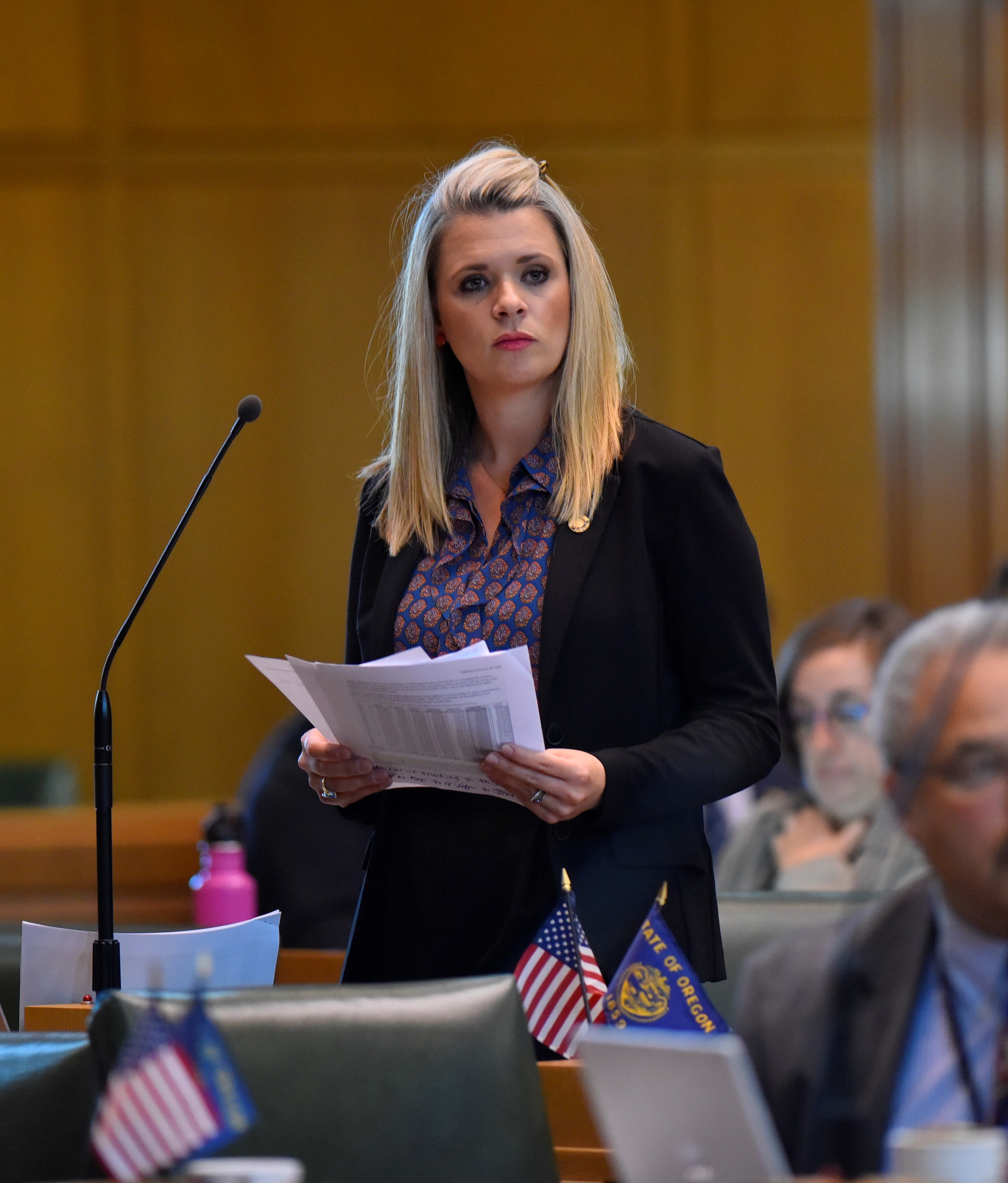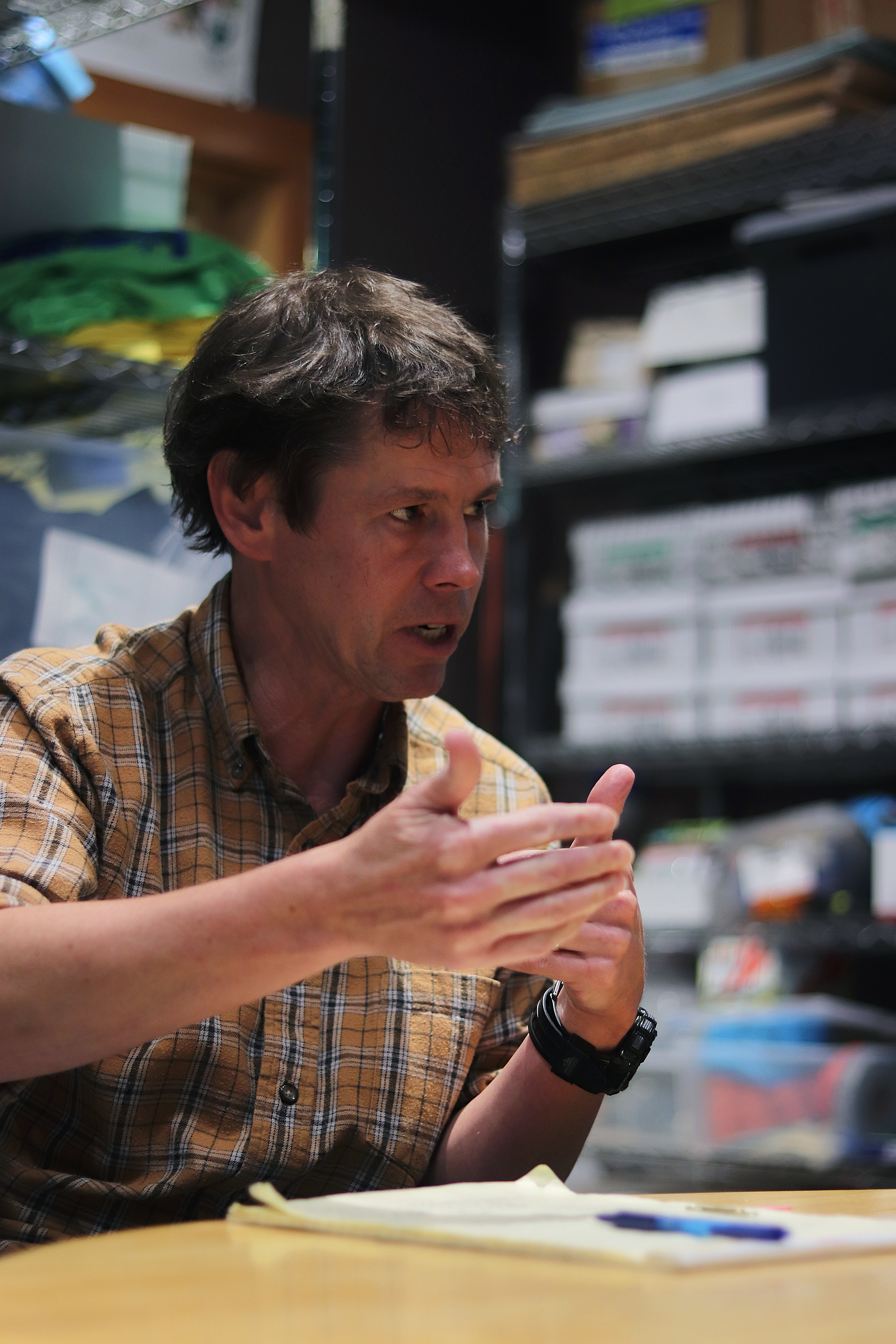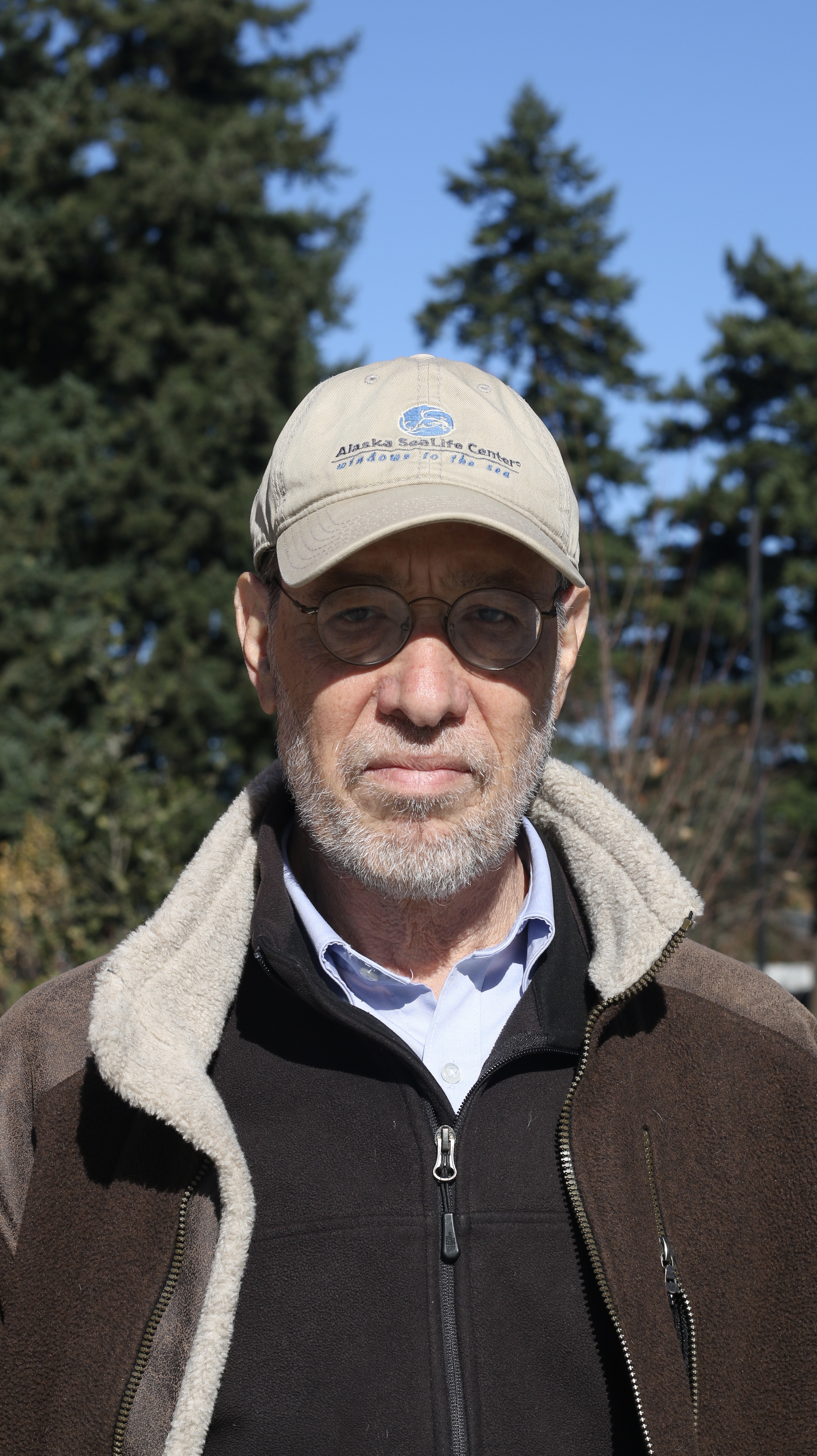Nine of Oregon’s 12 Republican senators walked out of the 2019 legislative session in protest of House Bill 2020 (HB2020) on June 11, arguing that the passage of the bill would harm their rural constituents. This walkout garnered national attention as Governor Kate Brown mobilized Oregon’s police force to retrieve the senators, inciting several senators to hide out in Idaho.
On June 26, 2019, Oregon Senate Democrat President Peter Courtney announced to the Senate floor that HB2020 lacked the votes to pass, prompting resistant Republican senators to return from their week-long walkout that had prevented the bill from being voted upon. At first glance, this declaration seemed to mark the ceding of the left to the right; however, it also signified a newly recognized divide within the Democratic party.
By acknowledging that the bill lacked support in a Democrat-controlled Senate, Courtney admitted that the remaining senators would not vote to pass the seemingly widely favored carbon tax program. HB2020, also known as the Clean Energy Jobs Bill, no longer held sufficient support in what Forbes considers the country’s third “greenest” state in America.
First proposed in Feb. 2019, HB2020 calls for a carbon tax on the largest polluters of greenhouse gases in Oregon, specifically those within the manufacturing, utility and transportation sectors. Through the bill, emitting corporations, most often those who rely on fossil fuels, would be allocated an unspecified amount of free offset credits which could be traded amongst polluters in a cap-and-trade system. These companies would need to purchase more offset credits for each additional ton of carbon emitted. Over time, credits would increase in price, incentivizing corporations to adopt environmentally friendly policies. The offset credits would fund carbon reduction projects such as tree planting initiatives.
HB2020 has sparked debate among Oregon’s Democrats and Republicans since it was first introduced. The state has consistently made an effort to minimize its carbon footprint with low emission rates and a heavy reliance on clean energy, often trailing only behind California in passing progressive legislation. For this reason, many Republicans have reasoned that a carbon tax is unnecessary in Oregon and that it imposes detrimental costs on manual labor workers, particularly rural residents.
“If you’re going to tax energy, then those jobs, those everyday, average working Oregonian jobs would be at risk across the state,” says Albany, Ore. Representative Shelly Boshart Davis, who voted no on the bill in the House of Representatives.
In contrast, some Democrat activists argue that HB2020 lacks sufficient solutions for climate change, claiming that too many exemptions were permitted for specific corporations and job sectors. Companies within the agriculture sector were not required to purchase credits in order to produce carbon emissions, even though these corporations were largely responsible for emissions in Oregon. In 2016, the agriculture industry was the main emitter, producing six million metric tons of carbon, more than that from Oregon’s entire industrial sector.
“We still support this bill, we know we’ve got to act now. If you listen to the (Intergovernmental Panel on Climate Change), we’ve got, you know, now 11 years to get something done. And so, we’ve got to pass this bill and yet, it could be stronger,” says Rhett Lawrence, the Conservation Director of Oregon’s Sierra Club chapter.
HB2020, which was the most recent iteration of Oregon’s cap-and-trade policy, was first introduced in early 2019 with the help of environmentalist group Renew Oregon and various other climate activist groups. Renew Oregon previously worked on passing a similar cap-and-trade bill in 2018, which did not pass.
Following the failure of the 2018 bill, a special committee—the Joint Committee on Carbon Reduction—was formed. This group was comprised of Oregon state senators and representatives, Republicans and Democrats alike. They met throughout 2018 to compose a new bill, drawing from elements of Renew Oregon’s original bill.
This iteration of the bill provided more exemptions for large corporations than before, in an attempt to appeal to Republican interest. “I think they listened to corporations a little too much because the bill that we ended up getting that they wrote that we pushed in 2019 was actually pretty weak when we actually started,” says Renew Oregon Coalition Director Shilpa Joshi.
The bill aimed to mirror California’s cap-and-trade program, which was implemented in 2013 and is the only legislation of its kind in the country. Carbon tax regulations would go into effect in 2021, which would place a limit on greenhouse gas emissions released by large corporations throughout the state of Oregon.
If corporations exceeded their allowed emission amounts, they would be required to purchase credits. The profits would fund “green” projects across Oregon, including more accessible public transportation and extensive urban bike paths.
Heading into the six-month-long legislative session of 2019, the bill seemed prepared to pass. The bill passed the Oregon House of Representatives with a 36-24 vote. However, once it made it to the Senate, the bill was never voted upon due to a lack of Republican senators in attendance.
According to Oregon state law, quorum, which is the minimum number of members required to be present during a vote, must be met, and the walkout violated this rule.
“I truly believe that this bill would have been so detrimental to the economy of Oregon and to rural Oregon that the Republican senators used every means necessary to make sure that didn’t pass because it was that bad,” says Boshart Davis. “If I were in that position, I would have used every means necessary.”
The Republicans’ decision to walk out received backlash from much of Oregon’s youth community. Youth from across the state protested at the Capitol in Salem in reaction to the walkout, arguing that the refusal to vote was unconstitutional.
Grant senior Edith Allen joined the Oregon League of Conservation Voters (OLCV) in 2019, working to create interest surrounding HB2020. After giving a speech at a rally in Salem, the Portland Tribune approached Allen, asking her to write an op-ed about the bill.
“(The op-ed) was mainly about the Clean Energy Jobs Bill … and … the whole idea of it was that youth voices matter in this movement because, you know, we’re going to be around the longest of the people that are affected by climate change,” says Allen.
Many opponents of HB2020 question why the bill is necessary and if it is worth the potential economic consequences. Specifically, some believe that the bill could impose negative financial consequences for manual labor groups such as farmers.
“We are not contributing to the problem and why would we want to shut down our businesses of all sizes and shapes for the intent of saying we should do more … what I thought was really unfortunate in this particular set of conversations, towards the end of session, is there were young people … being encouraged to come into the building wearing T-shirts that said ‘We need green jobs, we need clean air. Because we are going to die,’” says Tammy Dennee, the Legislative Director for the Oregon Dairy Farmers Association.
With a lingering sense of failure since the end of the 2019 session, much of Oregon’s climate activism community is unsure of what is next. Renew Oregon is in the process of writing the next iteration of a cap-and-trade bill while groups like Sierra Club look to find what they view as a more equitable climate legislation. “We want to get a climate bill through on the 2020 session but, you know, is there any path to do that and what does it look like? We’re still trying to figure that out organizationally,” says Lawrence.
Although the possibility of cap-and-trade legislation in the 2020 session is uncertain, climate activists are committed to making substantial changes to reduce the effects of climate change.
“Obviously, it isn’t a complete solution … But I think it’s a step in the right direction,” says Allen.

Shelly Boshart Davis
Oregon Representative (R)
She/Her
“I was a ‘no’ vote on the bill … These are corporations that have places all over the United States, if you cap them here, they simply move to another state with less regulation, and they would emit more in less-regulated states … Everybody is so intent like ‘cap-and-trade is going to fix climate change’—no it’s not. It absolutely is not. So if that’s what you think, or anyone thinks, then that’s just completely wrong. It’s just a bill that would pass … It’s one of those things you can throw out like an abortion debate or a gun debate and people want you to be on one side of that or the other and I’m like, ‘to me, it’s not black and white.’ To me, it’s let’s look at everything that we have here and just, I refuse to be part of that conversation where I’m either yes or no. And I just don’t think it needs to be a quote unquote climate change bill. How do we be more efficient with our resources? How do we try to bring people together in this state instead of saying which side of this argument are you on?”
Photo courtesy of Perry Renee

Rhett Lawrence
Conservation Director of Oregon’s Sierra Club chapter
He/Him
“It put us in a little bit of a difficult position because we’ve been involved in multiple iterations of the bill over multiple sessions and, you know, recognizing the climate crisis that’s in front of us and the need to get greenhouse gas emissions … down and get a bill to do that over the finish line while at the same time, you know, raising up the very valid concerns of the (environmental justice) groups … And we were very clear from the start, we still support this bill. We know we’ve got to act now, if you listen to the (Intergovernmental Panel on Climate Change) we’ve got you know now 11 years to get something done. And so we’ve got to pass this bill and yet it could be stronger. And it should be doing these other things … It’s not quite accurate to say we pulled our support for the bill because we were in it from the get-go and supporting it the entire session … Our failure to pass this bill … won’t be catastrophic but what I think … the failure to pass this bill does say is that, you know, that we’re not ready to be part of the change and that it’s somebody else’s problem.”

Shilpa Joshi
Coalition Director at Renew Oregon
She/Her
“(I) think that communities deserve some sort of safety net for our protection from the worst climate impacts and we need to have dollars raised in order to do that. And they should come from the wealthiest companies that are polluting the most in our state, right? The money should not come from people’s taxes or from money we would otherwise be spending on schools or something. For this problem in society called climate change, there are very clear actors that have contributed a ton of pollution every year and those companies should be held accountable … If you actually know what laws we have on the book, Oregon is actually really far behind. We have no plan to reduce our pollution from the biggest polluters and a lot of other states are setting those plans up already and we don’t have that. We have no safety net, we’re not raising any money from polluters so that we can protect people from when climate impacts hit our communities. We have a reputation, but that reputation is really outdated … We used to be a leader and it’s important for us to maintain that leadership role by actually passing legislation like the cap and invest program because otherwise, it’s just talk and no action.”

Michael Dembrow
Oregon Senator (D)
He/Him
“If we can get the whole West Coast aligned behind climate action, I think that will create an atmosphere where … we’ll be joined by other states … And that’s how action is going to happen. We just, unfortunately, cannot expect action at the national level in the near future, so it’s got to come from the bottom up, from the ground up … I believe there is also just the moral argument that everybody should step up and do their part. We as legislators, we have to be thinking about the future and the next generations. So it’s really important for us to step up and do the best we can do as a state … I will say there is another, I think, real reason why we have to do this as soon as possible and that is that we are already feeling the effects of climate change here in Oregon. In our forests, on our shores, we’re no longer having enough water, we need to be making investments to make our forests healthier, to fight wildfires, we need to be strengthening our roads and bridges because with the greater storms that come, these more serious weather events, we’re seeing a lot of roads, especially on the coast, washing out, needing to be strengthened. It really makes sense to have the funds come from what is causing the problem, and that is these greenhouse gas emissions.”




